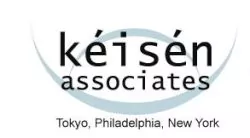Japanese translations of technical patent documents can be very costly. Are they necessary? Here are some possible ideas applicants may have to save money–and the risks associated with them.
Can I cut translation costs if I prepare the translation myself?
A patent document translation prepared by someone fluent in Japanese might be accepted, but the JPO examiner requires precise and technical language appropriate to the genre. Therefore, a patent agent will likely charge for checking the translation to make sure it would likely be accepted by the examiner. Otherwise, a translation may face many challenges by the examiner on technical points, leading to a drawn-out examination. It would be vital for a skilled technical translator to take time and review the document before submission.
In addition, a translation also has to be submitted in a particular format to the JPO. Even if the text of a good Japanese translation of the patent document is available, then, the patent agent who submits the description, figures, and claims to the JPO will likely incur some charge for fitting the content to the format, lest the JPO reject the application for formal reasons.
For these reasons, it actually is probably cost-effective to have a technical (patent) translator prepare the content and staff skilled in formatting to prepare the document for submission, instead of trying to cut costs.
Will the JPO accept a machine (e.g., Google) translation?
As for a machine translation, the risk is very high that the JPO would reject it. Patent documents are highly technical, and machine translations are not reliable or precise enough for a JPO examiner to find useful in the examination process. It is worth finding a trustworthy and highly skilled translator for such technical documents.
(The information provided on this website is for informational purposes only and is not intended as legal advice. For questions or inquiries, please contact us for more information.)
The content of this article is intended to provide a general guide to the subject matter. Specialist advice should be sought about your specific circumstances.

